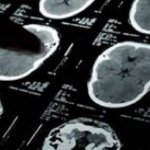New research in Forensic Science International showcases the use of environmental deoxyribonucleic acid (eDNA) to conduct extensive counter-terrorism investigations.
Researchers at Flinders University unveiled the new forensic technique which identifies environmental DNA in the dust of any clothes, baggage, or travel documents.
The technique works by tracing the dust found in the gear and with the dust at the area where the terrorism-related incident occurred.
“Massively parallel sequencing (MPS) has revolutionised the field of genomics enabling substantial advances in human DNA profiling,” the study’s co-authors wrote in their findings.
“Further, the advent of MPS now allows biological signatures to be obtained from complex DNA mixtures and trace amounts of low biomass samples. Environmental samples serve as ideal forms of contact trace evidence as detection at a scene can establish a link between a suspect, location and victim.”
All in all, the new findings provide a new glimpse of the use of eDNA in forensic science.
The study was among the few projects that received recent support from the Defence Innovation Partnership’s Collaborative Research Fund.


